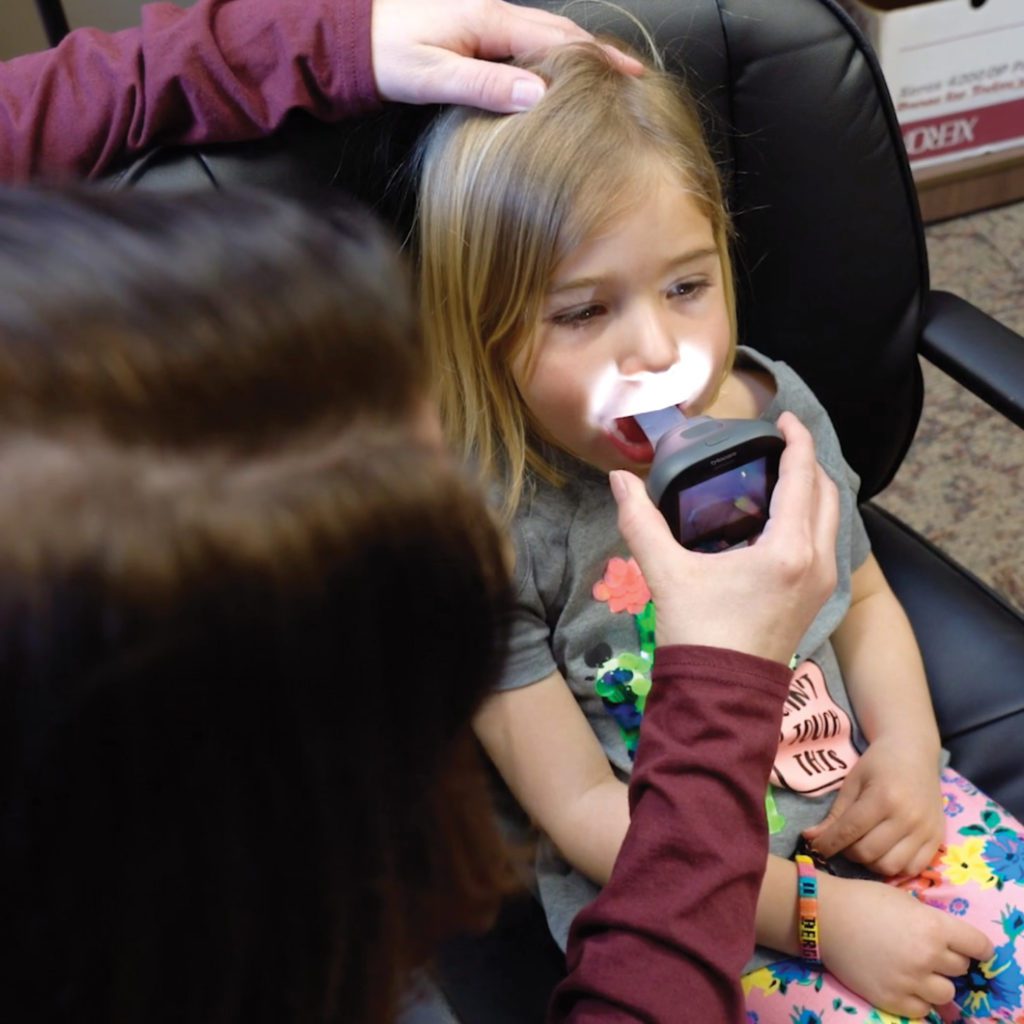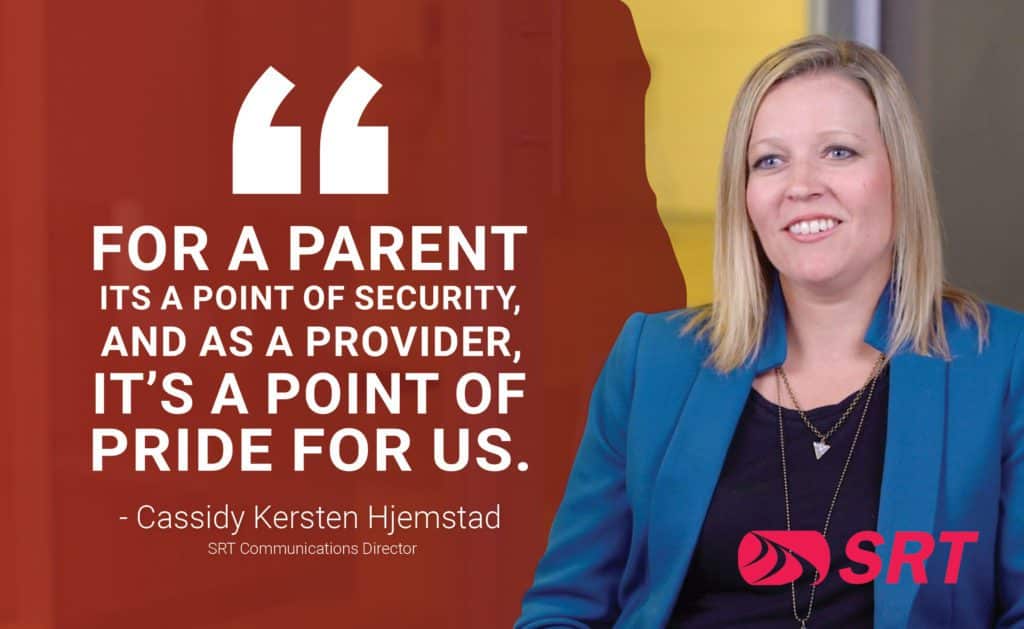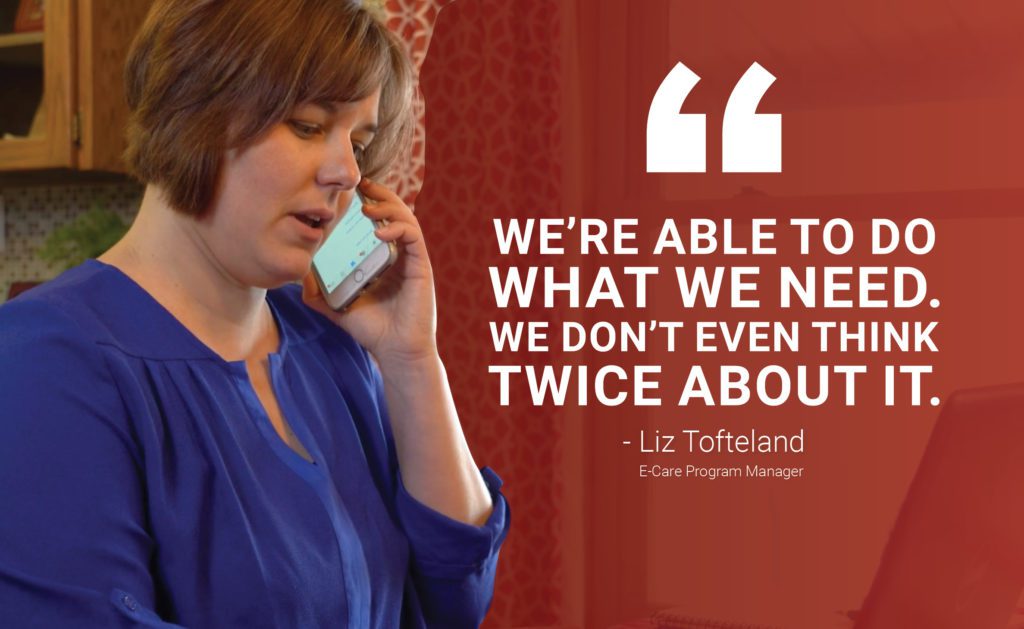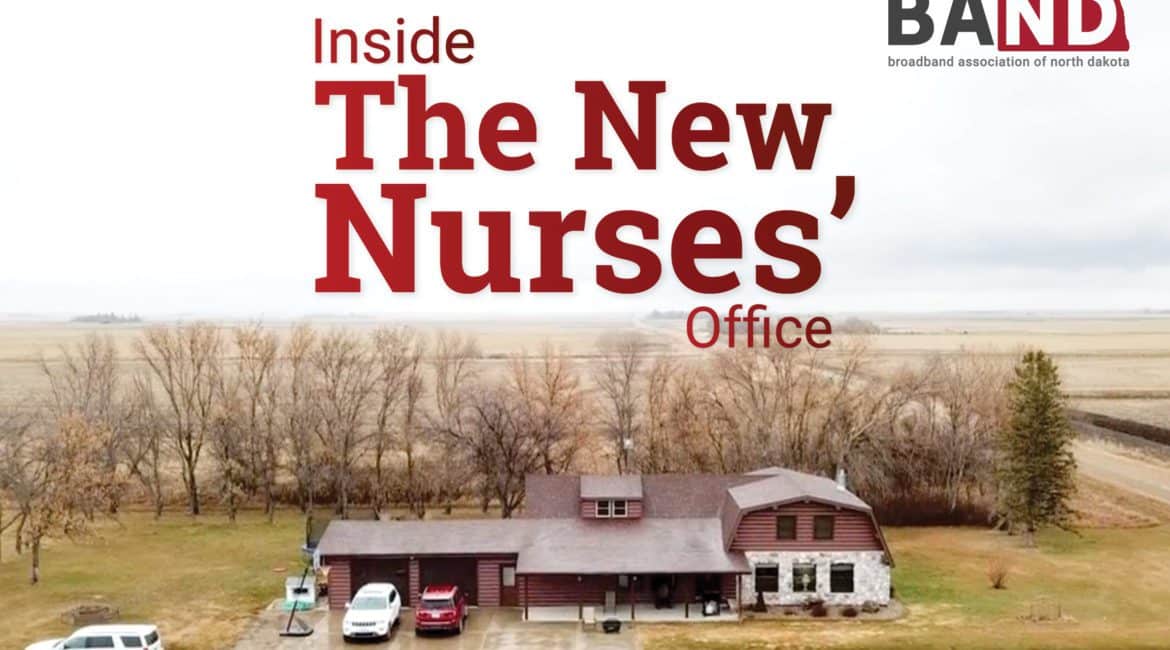How broadband creates care opportunities across North Dakota

When the nearest grocery store is more than thirty miles away, it’s easier said than done to make a “quick trip” into town to grab a gallon of milk. For many, the luxury of convenience is worth sacrificing to live in a rural community. But with the advancement of technology, North Dakota residents no longer need to choose between convenience and the comfort of living in a small rural community. Thanks to broadband, North Dakota is more connected than ever before.
For Liz Tofteland of Westhope, ND, choosing to live in a rural community was an easy decision to make.
“I love the atmosphere. I love the community,” Liz said. “It’s a great place to raise a family.”
And as a nurse, Liz has plenty of opportunities to care for her community. Liz is a North Dakota E-Care Program Manager, offering school nursing services to rural schools across the state. In rural schools, where it’s difficult to have an on-site nurse at a moment’s notice, new telenursing programs like E-Care make it possible to provide care everywhere, from anywhere.
Using a uniquely designed video chat service and remote devices that deliver data from a township away, telenurses are able to evaluate, diagnose, and treat students. Telenursing has provided new opportunities for care–opportunities that wouldn’t be possible without the broadband services that support it.
For SRT, the local broadband provider and Broadband Association of North Dakota (BAND) members whose services support the care that Liz provides, being a part of the impact made by telenursing is a point of pride.
“For a parent, it’s a point of security,” said Cassidy Kersten Hjemstad, SRT Communications Director. “And, as a provider, it’s a point of pride for us.”

In communities like Westhope, hospitals are few and far between. E-Care programs allow health professionals to provide care with convenience, giving parents, students, and school staff a greater sense of security and peace of mind.
The broadband connections that SRT provides make it possible for telenurses like Liz to administer care to a large number of schools that otherwise wouldn’t typically have a school nurse.
“We’re able to do what we need. We don’t even think twice about it,” Liz said.

All the work that Liz does with E-Care is online. Without quality, reliable broadband, thousands of students in rural schools would go without access to necessary healthcare.
“The fact that she can do her job from home and get healthcare to schools is amazing,” Cassidy said. “To know that SRT can be a part of that is exciting.”
Broadband providers, such as SRT, have made the accessibility to care more convenient than ever before. With the framework and support systems of broadband in place, it’s possible to give care everywhere.






